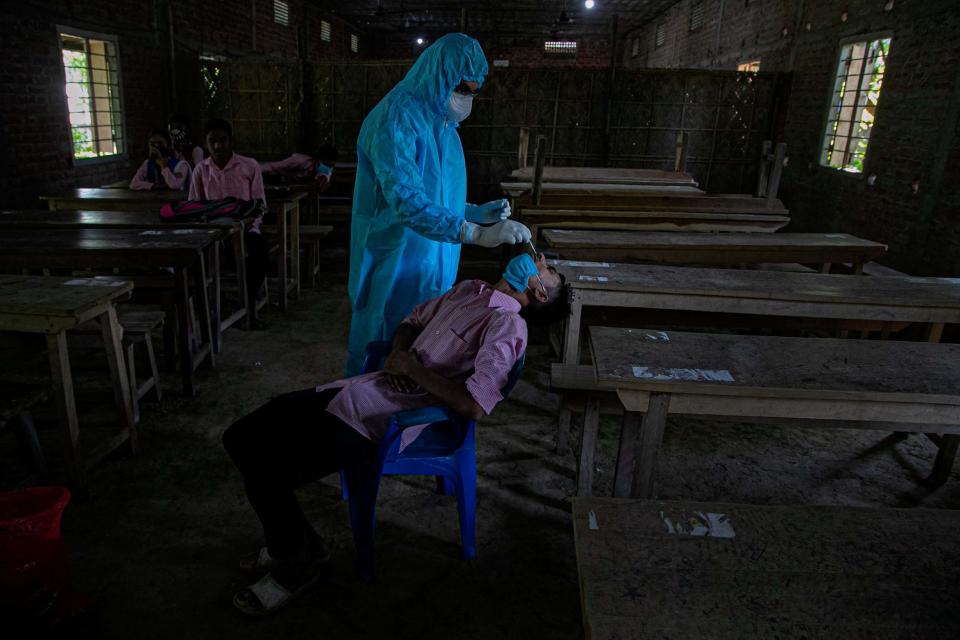India on course to become Covid-19 pandemic’s worst-hit country within weeks

India is on course to become the coronavirus pandemic's worst-hit country within weeks after recording its worst month of infections.
Health authorities reported 86,821 new coronaviruses cases on Thursday and another 1,181 deaths, raising the country's total to more than 6.3 million people infected and 98,678 dead from Covid-19.
The Health Ministry’s update for the past 24 hours means India has now recorded 41 per cent of its all its confirmed cases and 34 per cent of fatalities from the pandemic in September alone.
The rate of infection has set the country on course to become the hardest-hit by Covid-19 within weeks, surpassing the United States, where more than 7.2 million people have contracted the virus.
While most of India’s deaths remain concentrated in its large cities, smaller urban centres across the country’s vast landscape are also reporting a surge in infections.
Meanwhile, India's government is preparing to further ease restrictions rolled out to curtail the pandemic starting on October 15.
From then, cinemas, theatres and multiplexes can open with up to 50 per cent of seating capacity, and swimming pools can also be used by athletes in training.
The government also said India’s 28 states can decide on reopening of schools and coaching institutions gradually after October 15. However, the students will have the option of attending online classes.
International commercial flights will remain suspended until October 31. However, evacuation flights will continue to and from the United States, UK, Australia, Canada, France, Japan and several other countries.
The moves come after India's Prime Minister Narendra Modi imposed the world’s stringent lockdown across the country late in March.
However, Mr Modi started easing restrictions after two months in a bid to revive the country's severely-hit economy, which contracted by an unprecedented 24 per cent in the April-June quarter.
The lockdown cost more than 10 million impoverished migrant workers their jobs in the cities.
Read more
Rule of six and local lockdowns 'may be helping curb virus'- LIVE

 Yahoo Sport
Yahoo Sport 





































